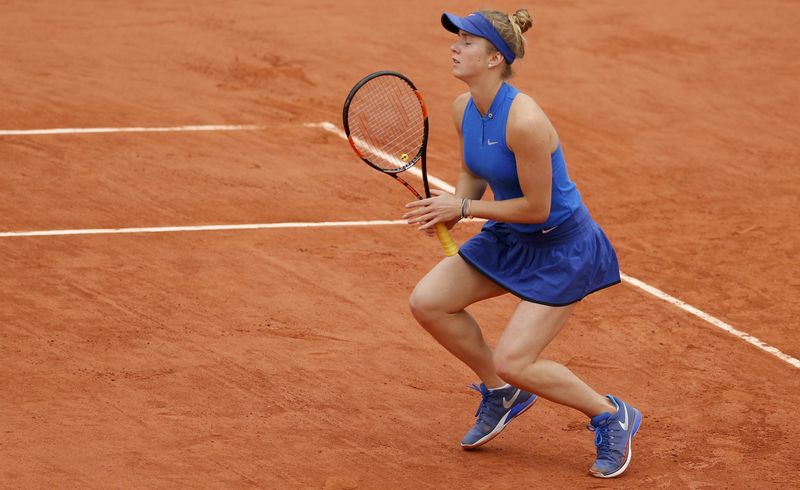By Ossian Shine
PARIS (Reuters) - It would be unfair to blame Elina Svitolina, for so few have what it takes to bring the best out of Serena Williams.
Never mind that this was a grand slam fourth round match, or that Svitolina was the 18th seed. Once again, the champion swept past an opponent while barely breaking sweat.
The American's 6-1 6-1 scoreline to reach the French Open quarter-finals on Wednesday tells its own story; and it was a tale deserving a better stage than a sparsely populated Roland Garros centre court.
A certain type of genius had been on show. Not the sort of shot-playing, mesmerising genius conjured when two superstars of the sport lock horns; but genius nonetheless. The type that allows a player to out-think, out-manoeuvre and out-gun their opponent -- all with the minimum of fuss.
Year, after year, after year.
Not for nothing is Williams ranked number one in the world. While few had expected Svitolina to see off Williams, many might have expected a better fight, if only by virtue of her top-20 ranking.
Svitolina soon learned, though, the more you throw at Williams, the more you get back. That is how she has amassed 21 grand slam singles crowns, and four Olympic golds.
Each time Svitolina thumped a ball harder, Williams slid into place and clattered it with timing and a power her opponent could only dream of.
The stands slowly filled, and Williams slowly turned the screw. "I didn't play my best in the third round and I really wanted to come out and do a lot better," Williams said, by way of some explanation.
Empty green seats outnumbered raincoat-clad fans by around five to one on the Parisian showcourt, and heavy slow balls offered little artistry to entice greater numbers.
But those willing to brave the chilly, sodden conditions were treated to a display of utter dominance.
She spluttered from time to time, but always did enough to neuter her scurrying opponent, and will play Yulia Putintseva for a spot in the semis.
The bare statistics tell their own story. Both players made a similar number of unforced errors -- this was never a display
of perfection or sublime shot-making -- but Svitolina made far more forced errors, highlighting the pressure throughout.
Serena's serves were consistently faster, both first and second. She won the lions' share of break points on offer, and almost all the points when venturing to the net.
In total, Williams won almost twice as many points as her opponent, 64 to Svitolina's 35.
Was she twice as good? She was -- and the rest.
"I feel it was a better match for me. She's a really good player. She gets a lot of balls back. So it was really good for me to play that."
As it happened, Svitolina didn't get nearly enough balls back, and Williams finished her off in a smidgeon over an hour.
As big sister Venus headed for the exit, having lost to Timea Bacsinszky, Serena returned to the changing room, another challenger looming, another practice session ahead, another round to play.
Her tired smile as she exited the court perhaps suggesting even she may one day tire of shooting fish in a barrel.

While that may be the case after almost 20 years at the cutting edge of women's tennis, neutrals should hope that time is a little way off. Those tiring of Williams' dominance might well consider the bleak landscape without her star quality.